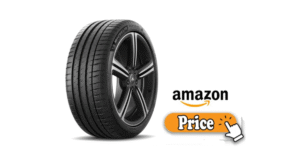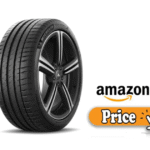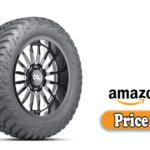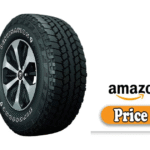If you’ve ever gone tire shopping or researched premium tire brands, chances are you’ve come across the name Michelin. For decades, Michelin has been a trusted name in the automotive world, a brand synonymous with quality, innovation, and performance.
But with so many options out there, it’s natural to wonder: Are Michelin tires good? And more importantly, how long are Michelin tires good for? In this comprehensive guide, I’ll share a deep dive into Michelin tires,
exploring what makes them stand out, how they perform in real-world conditions, their expected lifespan, and how they compare with alternatives. I’ll also offer personal insights and experiences to help you decide if Michelin tires are the right investment for your vehicle.
What I Like
Michelin doesn’t just sell tires; they sell peace of mind. Here’s what I’ve consistently liked about them:
1. Exceptional Performance Across All Conditions
Whether it’s scorching summer heat or icy winter roads, Michelin tires adapt impressively. Their all-season tires maintain traction on wet and dry pavement, and their winter options, like the X-Ice series, provide excellent grip on snow and ice.
2. Quiet and Comfortable Ride
One of Michelin’s standout features is how quiet their tires are. Technologies like Michelin’s C, Comfort Control Technology, reduce road noise and vibrations significantly, making long road trips noticeably more enjoyable.
3. Outstanding Longevity
Michelin doesn’t just claim their tires last; they back it up with impressive mileage warranties, often up to 80,000 miles. In real-world use, many Michelin tires exceed expectations when it comes to tread life.
4. Strong Safety Ratings
Many of their tire models receive top ratings for braking performance, hydroplaning resistance, and overall safety. This is critical when driving in unpredictable conditions.
5. Environmentally Conscious Design
Michelin leads the industry with eco-friendly manufacturing practices and fuel-efficient tire designs. The Michelin Energy Saver series, for example, is built to reduce rolling resistance and improve fuel economy.
What Could Be Better
As much as I appreciate Michelin tires, they aren’t perfect. Here are a few areas where there’s room for improvement:
1. Price Point
Let’s be honest: Michelin tires are not cheap. While the performance and longevity may justify the cost, the upfront investment can be steep, especially for drivers on a budget.
2. Availability in Some Regions
Depending on your location, certain Michelin models may be hard to find. This is especially true for less common sizes or specialty tires.
3. Sport Tires Can Wear Faster
While Michelin’s high-performance tires like the Pilot Sport series offer unmatched grip and handling, their tread life is shorter than standard touring tires.
4. Not Always the Best for Off-Roading
If you’re into rugged terrains and hardcore off-roading, Michelin might not be your first choice. Brands like BFGoodrich or Goodyear tend to cater more directly to off-road needs. 👉🏿👉🏻 Check Latest Price and Offer at Amazon 👈🏻👈🏿
👉🏿👉🏻 Check Latest Price and Offer at Amazon 👈🏻👈🏿
My Personal Experience With Michelin Tires
I’ve been driving for over 15 years, and during that time, I’ve used several tire brands on various vehicles, sedans, SUVs, and even a small crossover. But every time I return to Michelin, I notice a difference.
The Ride Feel
One of the first things I noticed waboutMichelin tires is how smooth and stable they feel, especially at highway speeds. There’s less vibration, and the vehicle feels more planted during cornering or abrupt braking.
Durability Test
I once mounted a set of Michelin Defender T+H tires on my daily driver, a mid-sized sedan. I drove them for 72,000 miles over six years in mixed conditions: urban roads, highways, and a few country trails. Even near the end, the tread wore evenly, and I never had a single blowout or puncture issue.
Winter Performance
For my winter setup, I’ve used Michelin X-Ice Snow tires. In slushy or icy road conditions, the control and braking performance have been outstanding enough to make me feel confident even during whiteout conditions.
Design Philosophy of Michelin Tires
1. Innovative Tread Patterns
Michelin engineers work tirelessly to design tread patterns that maximize traction and minimize noise. From their asymmetric patterns for dry grip to multi-directional siping for winter traction, every detail matters.
2. Advanced Rubber Compounds
Michelin tires incorporate silica-based compounds that adapt to temperature changes. This enhances wet grip while preserving durability, a key factor in their longevity.
3. Comfort-Oriented Design
Many of their touring tires feature a computer-optimized design to reduce road noise. Michelin even utilizes precision manufacturing processes to ensure tire balance, further enhancing ride comfort.
Performance: Are Michelin Tires Good on the Road?
The simple answer: Yes, Michelin tires are good and in many cases, outstanding.
1. Dry Performance
Michelin’s Pilot Sport 4S is a prime example. On dry roads, it offers race-inspired grip, sharp steering, and excellent braking performance. Car enthusiasts and high-performance drivers often swear by it.
2. Wet Performance
Michelin excels in wet-road safety. Tires like the Primacy MXM4 and CrossClimate 2 deliver reliable wet braking and prevent hydroplaning better than most competitors.
3. Snow and Ice
The X-Ice series continues to be one of the top-rated winter tires for snow traction and braking. Even the CrossClimate+, an all-weather tire, has earned the Three-Peak Mountain Snowflake (3PMSF) symbol, indicating reliable snow performance.
4. Fuel Efficiency
The Michelin Energy Saver A/S is engineered to reduce rolling resistance, making it a favorite for hybrid or economy car owners looking to squeeze out every mile per gallon.
Build Quality: How Long Are Michelin Tires Good For?
Now, let’s get into the question, “How long are Michelin tires good for?”
1. Tread Life Expectancy
Michelin tires typically last anywhere between 40,000 to 85,000 miles, depending on the model and usage:
| Tire Model | Estimated, Howad Life |
| Michelin Defender T+H | 80,000 miles |
| Michelin Pilot Sport 4S | 30,000–45,000 miles |
| Michelin CrossClimate 2 | 60,000–70,000 miles |
| Michelin Energy Saver A/S | 65,000–75,000 miles |
| Michelin X-Ice Snow | 40,000–50,000 miles |
2. Warranty Support
Michelin backs most of their tires with limited treadwear warranties, ranging from 40,000 to 90,000 miles. They also offer road hazard protection and 30-day satisfaction guarantees on many models.
3. When to Replace Michelin Tires
Even if your tread is intact, Michelin recommends replacing tires every 6 to 10 years, depending on use and environmental conditions. Look for signs of cracking, vibration, or reduced grip as indicators that it’s time to change.
Read More: Firestone vs Goodyear | My Honest Review
Alternative Options
If Michelin doesn’t quite fit your budget or needs, here are some comparable alternatives:
1. Continental
Great for comfort and wet performance. The Continental TrueContact Tour is a solid, long-lasting option.
2. Bridgestone
Another premium player with excellent all-season performance. The Bridgestone Turanza QuietTrack offers a silent ride.
3. Goodyear
A well-rounded choice with innovative features. The Assurance WeatherReady is comparable to Michelin’s CrossClimate.
4. Pirelli
Known for sporty handling. The Pirelli Cinturato P7 All Season Plus is a good option for spirited drivers.
Final Thoughts:
After exploring every angle from personal experience to technical specs, the answer is a confident yes: Michelin tires are good and often worth the investment. They offer a perfect balance of performance, safety, comfort, and longevity.
If you value peace of mind, long-term savings, and premium road feel, Michelin is hard to beat. And when asking, How long are Michelin tires good for?” the answer is: they’re good for the long haul, often surpassing their advertised lifespan when properly maintained.
FAQs: Are Michelin Tires Good | How Long Are Michelin Tires Good For
Q1: Are Michelin tires good in snow?
Yes, especially models like the X-Ice Snow and CrossClimate 2. These tires offer excellent snow traction and braking.
Q2: How long do Michelin tires typically last?
Depending on the model, Michelin tires last 40,000 to 85,000 miles or 6 to 10 years with proper care.
Q3: Are Michelin tires worth the money?
While more expensive upfront, their durability, safety, and performance make them a cost-effective long-term choice.
Q4: Are Michelin tires better than Goodyear?
Both are premium brands, but Michelin often leads in ride comfort, fuel efficiency, and longevity.
Q5: Do Michelin tires come with a warranty?
Yes. Most Michelin tires include a limited mileage warranty, roadside assistance, and a 30-day satisfaction guarantee.


